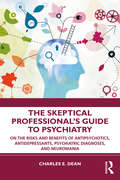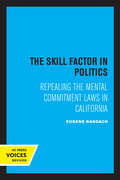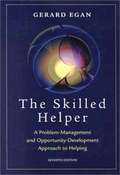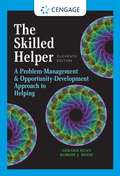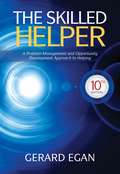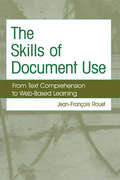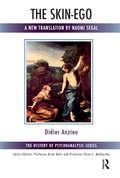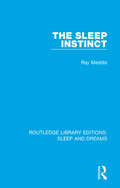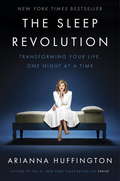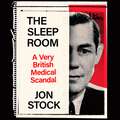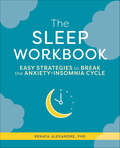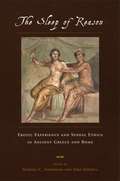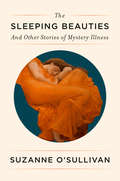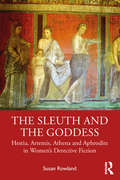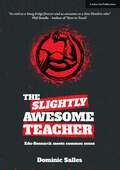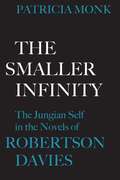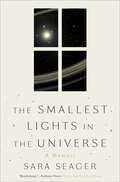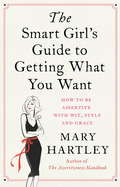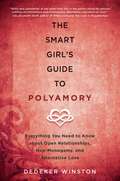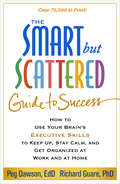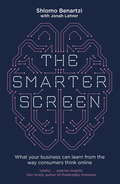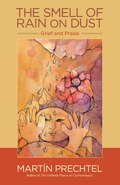- Table View
- List View
The Skeptical Professional’s Guide to Psychiatry: On the Risks and Benefits of Antipsychotics, Antidepressants, Psychiatric Diagnoses, and Neuromania
by Charles E. DeanThis text critically examines the shortcomings of psychiatry; the flawed development of the diagnostic system, including the DSM-5; and the failure to advance the effectiveness of antipsychotics and antidepressants. Starting with an overview of the evolution of psychiatry, Dean explores the creation, use, and misuse of medications, a process largely driven by drug companies. Other chapters describe the benefits and risks of medications, the problems associated with rational prescribing, and the embrace of so-called novel therapies including hallucinogenic drugs and opioids. Chapters end with a set of clinical notes that provide specific recommendations to clinicians, families, patients, and other providers, emphasizing the risks and benefits of treatment with medications but also stressing alternative approaches. This book will challenge clinicians to think critically about the DSM-5 and the current systems of diagnosis and treatment of mental illnesses in the hopes of ultimately improving the lives of people with mental illnesses.
The Skill Factor in Politics: Repealing the Mental Commitment Laws in California
by Eugene BardachThis title is part of UC Press's Voices Revived program, which commemorates University of California Press’s mission to seek out and cultivate the brightest minds and give them voice, reach, and impact. Drawing on a backlist dating to 1893, Voices Revived makes high-quality, peer-reviewed scholarship accessible once again using print-on-demand technology. This title was originally published in 1972.
The Skilled Helper: A Problem Management and Opportunity Development Approach to Helping
by Gerard Egan Robert ReeseTHE SKILLED HELPER has taught thousands of students a proven, step-by-step counseling process that leads to increased confidence and competence. Internationally recognized for its successful approach to effective helping, the text emphasizes the collaborative nature of the therapist-client relationship and uses a practical, three-stage framework that drives client problem-managing and opportunity-developing action. This eleventh edition emphasizes the \"power of basics,\" like decision-making skills, which are the key ingredients of successful therapy. You'll also gain a feeling for the complexity inherent in any helping relationship--but don't let that reality intimidate you. The authors show you how to adopt a helping process to the needs of your clients. You'll learn not just what you need to know and understand--but also what you need to DO to be an effective helper.
The Skilled Helper: A Problem-management And Opportunity-development Approach To Helping
by Gerard EganThis book elaborates on the communication skills needed by helpers to engage in a therapeutic dialogue with clients and a detailed overview of the problem-management and opportunity-development process at the heart of helping.
The Skills of Document Use: From Text Comprehension to Web-Based Learning
by Jean-Francois RouetThe Skills of Document Use: From Text Comprehension to Web-Based Learning examines functional literacy from a psychological standpoint. It offers a comprehensive discussion of the cognitive skills involved in reading, comprehending, and making use of complex documents. Understanding such skills is important at times when printed and online informat
The Skin-Ego: A New Translation by Naomi Segal (The History of Psychoanalysis Series)
by Didier AnzieuIn this classic work, the author presents and develops his theory of the importance of 'the Skin-ego'. Just as the skin is wrapped around the body, so the author sees the 'Skin-ego' as a psychical wrapping containing, defining and consolidating the subject. From this perspective, the structure and functions of the skin can provide psychoanalysts and general readers with a fertile and practical metaphor. The author's concept of the Skin-ego is the answer to questions he regards as crucial to contemporary psychoanalysis: questions of topography which were left incomplete by Freud; the analysis of fantasies of the container as of the contained; issues of touch between mothers and babies; extending the concept of prohibitions within an Oedipal framework to those derived from a prohibition on touching; and questions pertaining to the representation of the body and to its psychoanalytic setting. This new translation of Le Moi-peau is based on the second and last (1995) edition.
The Sleep Instinct (Routledge Library Editions: Sleep and Dreams #6)
by Ray MeddisMost of us believe that we sleep in order to rest our tired bodies and minds. Originally published in 1977, this centuries-old common-sense view is challenged by Ray Meddis, who describes and argues for a controversial new theory of the nature and function of sleep. The theory seeks to replace the old view with the idea that sleep may no longer serve any important function in modern man. Whereas the sleep instinct helps animals to survive by driving them to hide away for as long as possible each day, this is no longer a valuable asset in civilised surroundings. Nevertheless, as the author explains, we still feel driven by a primeval urge beyond conscious control to crawl away every evening to the security of our beds to wait out the dangerous hours of darkness which were such a threat to our ancestors. Contrary to contemporary wisdom, he also argues that dreaming is a primitive and particularly valueless kind of sleep – a crude a dangerous heritage from our reptilian ancestors which is kept to a bare minimum in most adult warm-blooded creatures. Ray Meddis writes in a non-technical style and succeeds admirably in making the science of sleep and intensive research studies on sleep accessible and even exciting for the general reader as well as for the scientist. He shows that not everyone is bound by a felt need for sleep; in fact, some human beings discussed at length in the book thrive on less than two hours sleep a night without any ill effects. The implications of the research described are little short of sensational; in particular, Dr Meddis believes that it is well within the bounds of possibility that future research will show us how changes can be brought about in normal people to free them from the bondage of their sleep instincts. This new perspective also leads directly into a radical reappraisal of the nature of insomnia and new possibilities for treatment.
The Sleep Revolution: Transforming Your Life, One Night at a Time
by Arianna HuffingtonWe are in the midst of a sleep deprivation crisis, writes Arianna Huffington, the co-founder and editor in chief of The Huffington Post. And this has profound consequences - on our health, our job performance, our relationships and our happiness. What is needed, she boldly asserts, is nothing short of a sleep revolution. Only by renewing our relationship with sleep can we take back control of our lives. In her bestseller Thrive, Arianna wrote about our need to redefine success through well-being, wisdom, wonder, and giving. Her discussion of the importance of sleep as a gateway to this more fulfilling way of living struck such a powerful chord that she realized the mystery and transformative power of sleep called for a fuller investigation. The result is a sweeping, scientifically rigorous, and deeply personal exploration of sleep from all angles, from the history of sleep, to the role of dreams in our lives, to the consequences of sleep deprivation, and the new golden age of sleep science that is revealing the vital role sleep plays in our every waking moment and every aspect of our health - from weight gain, diabetes, and heart disease to cancer and Alzheimer's. In The Sleep Revolution, Arianna shows how our cultural dismissal of sleep as time wasted compromises our health and our decision-making and undermines our work lives, our personal lives -- and even our sex lives. She explores all the latest science on what exactly is going on while we sleep and dream. She takes on the dangerous sleeping pill industry, and all the ways our addiction to technology disrupts our sleep. She also offers a range of recommendations and tips from leading scientists on how we can get better and more restorative sleep, and harness its incredible power. In today's fast-paced, always-connected, perpetually-harried and sleep-deprived world, our need for a good night's sleep is more important - and elusive -- than ever. The Sleep Revolution both sounds the alarm on our worldwide sleep crisis and provides a detailed road map to the great sleep awakening that can help transform our lives, our communities, and our world.From the Hardcover edition.
The Sleep Room: A Very British Medical Scandal
by Jon Stock'Shocking... a damning portrait of a man who, in the name of psychiatric progress, left a trail of broken lives in his wake' Telegraph, five stars'Compelling' Sunday Times"A gripping expose" Financial Times'A beautifully researched, wildly unsettling study of a psychiatrist running amok' Sam Knight, author of The Premonitions BureauThe Royal Waterloo Hospital, London in the 1960s. Six young women lie asleep on low beds. Day and night no longer exist, extinguished by a potent cocktail of antipsychotic, sedative and anti-depressant drugs. The women are taken from their beds by the nurses and given electroconvulsive therapy before being put to sleep again. All under the predatory eye of Dr William Sargant.THE SLEEP ROOM is a chilling exposé of Sargant's bizarre psychiatric treatments that were inflicted on hundreds of women with mental illness - among them the actor Celia Imrie. At the story's centre is a sinister and charismatic doctor, who was a hugely influential figure in post-war British society - lauded by Robert Graves and Aldous Huxley as well regularly appearing on the BBC. When Sargant died in 1988, the obituaries were glowing.But since then, women treated without their consent and with often horrific side-effects lasting decades have been campaigning to tell the truth about Sargant. Author Jon Stock tells these women's stories as well delving into the murky history of Sargant's links with the CIA and M15, both of which took a close interest in his efforts to reprogramme the human mind.As compulsive as a thriller, The Sleep Room finally gets to the truth of a scandal at the heart of the British medical establishment.'A devastating account of the effects one unchecked psychiatrist had on vulnerable mental patients.'Lisa Appignanesi, author of Mad, Bad and Sad: A History of Women and the Mind Doctors'A gripping medical biography that encompasses sex, drugs, brainwashing, intelligence operations, murder and several scandals' Frank Tallis, author of Mortal Secrets: Freud, Vienna and the Discovery of the Modern Mind'A chilling case study in dangerous psychiatry, Stock's gripping exposé of the invasive and reckless interventions inflicted on women in the Sleep Room will keep you wide awake.' Cordelia Fine, author of Patriarchy Inc. and Testosterone Rex
The Sleep Workbook: Easy Strategies to Break the Anxiety-Insomnia Cycle
by Renata AlexandreConquer anxiety-induced insomnia with your mind—a workbook for rethinking sleepIf you are among the 1/3 of adults in the United States dealing with the vicious cycle of chronic sleep disruption, you can put your worries to bed. The Sleep Workbook uses the scientifically proven Cognitive Behavioral Therapy for Insomnia (CBT-I) to change your thinking, improve your life, and help you get a good night's rest.By following easy-to-understand and easy-to-follow steps, you can reduce anxiety, change detrimental sleep habits, and sleep more easily. CBT-I can help you make measurable positive changes, boost your confidence, and have more energy to do the things that matter. Before turning to options like sleeping pills, take the time to understand your insomnia and change the things you have full control over—your thoughts and behavior.The Sleep Workbook contains:Personal experience—Use self-assessments, journal prompts, and self-reflective questions to fully grasp your underlying issues.Success rate—About 80% of people who complete CBT-I show long-term sleep improvement.A stronger you—As you learn to combat anxiety and other types of mood disorders, you'll likely increase your self-confidence because you were able to help yourself.No more counting sheep for you! Break the sleepless nights and start your days refreshed.
The Sleep of Reason: Erotic Experience and Sexual Ethics in Ancient Greece and Rome
by Martha C. Nussbaum Juha SihvolaSex is beyond reason, and yet we constantly reason about it. So, too, did the peoples of ancient Greece and Rome. But until recently there has been little discussion of their views on erotic experience and sexual ethics. The Sleep of Reason brings together an international group of philosophers, philologists, literary critics, and historians to consider two questions normally kept separate: how is erotic experience understood in classical texts of various kinds, and what ethical judgments and philosophical arguments are made about sex? From same-sex desire to conjugal love, and from Plato and Aristotle to the Roman Stoic Musonius Rufus, the contributors demonstrate the complexity and diversity of classical sexuality. They also show that the ethics of eros, in both Greece and Rome, shared a number of commonalities: a focus not only on self-mastery, but also on reciprocity; a concern among men not just for penetration and display of their power, but also for being gentle and kind, and for being loved for themselves; and that women and even younger men felt not only gratitude and acceptance, but also joy and sexual desire. Contributors: * Eva Cantarella * Kenneth Dover * Chris Faraone * Simon Goldhill * Stephen Halliwell * David M. Halperin * J. Samuel Houser * Maarit Kaimio * David Konstan * David Leitao * Martha C. Nussbaum * A. W. Price * Juha Sihvola
The Sleep of Reason: Erotic Experience and Sexual Ethics in Ancient Greece and Rome
by Martha C. Nussbaum Juha SihvolaSex is beyond reason, and yet we constantly reason about it. So, too, did the peoples of ancient Greece and Rome. But until recently there has been little discussion of their views on erotic experience and sexual ethics. The Sleep of Reason brings together an international group of philosophers, philologists, literary critics, and historians to consider two questions normally kept separate: how is erotic experience understood in classical texts of various kinds, and what ethical judgments and philosophical arguments are made about sex? From same-sex desire to conjugal love, and from Plato and Aristotle to the Roman Stoic Musonius Rufus, the contributors demonstrate the complexity and diversity of classical sexuality. They also show that the ethics of eros, in both Greece and Rome, shared a number of commonalities: a focus not only on self-mastery, but also on reciprocity; a concern among men not just for penetration and display of their power, but also for being gentle and kind, and for being loved for themselves; and that women and even younger men felt not only gratitude and acceptance, but also joy and sexual desire. Contributors: * Eva Cantarella * Kenneth Dover * Chris Faraone * Simon Goldhill * Stephen Halliwell * David M. Halperin * J. Samuel Houser * Maarit Kaimio * David Konstan * David Leitao * Martha C. Nussbaum * A. W. Price * Juha Sihvola
The Sleeping Beauties: And Other Stories of Mystery Illness
by Suzanne O'SullivanIn Sweden, hundreds of refugee children fall into a state that resembles sleep for months or years at a time. In Le Roy, a town in upstate New York, teenage girls develop involuntary twitches and seizures that spread like a contagion. In the U.S. Embassy in Cuba, employees experience headaches and memory loss after hearing strange noises during the night. These are only a few of the many suspected culture-bound psychosomatic syndromes—specific sets of symptoms that exist in a particular culture or environment—that affect people throughout the world. In The Sleeping Beauties, Dr. Suzanne O&’Sullivan—an award-winning Irish neurologist—investigates psychosomatic disorders, traveling the world to visit communities suffering from these so-called mystery illnesses. From a derelict post-Soviet mining town in Kazakhstan to the Mosquito Coast of Nicaragua to the heart of the María Mountains in Colombia, O&’Sullivan records the remarkable stories of syndromes related to her by people from all walks of life. Riveting and often distressing, these case studies are recounted with compassion and humanity. In examining the complexity of psychogenic illness, O&’Sullivan has written a book of both fascination and serious concern as these syndromes continue to proliferate around the globe.
The Sleuth and the Goddess: Hestia, Artemis, Athena and Aphrodite in Women’s Detective Fiction
by Susan RowlandRowland presents a detailed exploration of how the archetypes of ancient goddesses Hestia, Artemis, Athena and Aphrodite breathe into and shape female-authored detective fiction. Representing aspects of characterisation not bound by gender, the book examines how these archetypes emerge in themes like the home and hearth, hunting, survival and desire. Rowland assesses numerous examples from a range of works, providing a clear illustration of each archetype and illuminating aspects of femininity, psyche and being. This uniquely interdisciplinary work of literary analysis sheds light on the popularity and underlying mystique of the genre.
The Slightly Awesome Teacher: Edu-research Meets Common Sense
by Dominic SallesMost books on teaching ask teachers to be inspirational, to operate at 100 miles an hour with creativity oozing out of every pore. Dominic Salles says that's unsustainable. But you can get brilliant results using some simple practices taken from the myriad of educational research on classroom practices. It isn't a guide to all the extra stuff you should do to become cool and awesome. It is a book that will get you to forget about teaching and think about learning: another way of saying, it will help you to stop stressing about what you do, and get the students to work harder and smarter at what they do. Dominic Salles believes that every teacher can be slightly awesome. And here he shows you how.
The Slightly Awesome Teacher: Edu-research Meets Common Sense
by Dominic SallesMost books on teaching ask teachers to be inspirational, to operate at 100 miles an hour with creativity oozing out of every pore. Dominic Salles says that's unsustainable. But you can get brilliant results using some simple practices taken from the myriad of educational research on classroom practices. It isn't a guide to all the extra stuff you should do to become cool and awesome. It is a book that will get you to forget about teaching and think about learning: another way of saying, it will help you to stop stressing about what you do, and get the students to work harder and smarter at what they do. Dominic Salles believes that every teacher can be slightly awesome. And here he shows you how.
The Smaller Infinity: The Jungian Self in the Novels of Robertson Davies (The Royal Society of Canada Special Publications)
by Patricia MonkThe concepts of the Jungian theory of personality have long held considerable interest for Robertson Davies, both outside his fiction and as the explicit subject of The Manticore. This interpretive study discusses Davies' use of Jungian psychology as both a structural and a thematic device and touches on related themes of illusion and the nature of reality.Drawing extensively on early reviews and articles, Monk sketches the background to Davies' preoccupation with psychology, revealing its influence on his early writings, including the effect of the Jungian concept of the persona on Shakespeare's Boy Actors and the ocncept of the shadow on the Samuel Marchbanks material. She also notes the introduction of the important themes of illusion, as a mask for reality, and ambivalence which are extended in the Salterton trilogy, Fifth Business, and The Manticore. Monk concludes that World of Wonders reveals an apparent but unsuccessful attempt on Davies' part to get away from Jungian psychology, and an exploration of alternative myths of human identity: the romance myth of the hero and the Spenglerian myth of the Magian soul.
The Smallest Lights in the Universe: A Memoir
by Sara SeagerCanadian MIT astrophysicist Sara Seager interweaves the story of her search for meaning and solace after losing her first husband to cancer, her unflagging search for an Earth-like exoplanet and her unexpected discovery of new love.Sara Seager has made it her life's work to peer into the spaces around stars--looking for exoplanets outside our solar system, hoping to find the one-in-a-billion world enough like ours to sustain life. But with the unexpected death of her husband, her life became an empty, lightless space. Suddenly, she was the single mother of two young boys, a widow at forty, clinging to three crumpled pages of instructions her husband had written for things like grocery shopping--things he had done while she did pioneering work as a planetary scientist at MIT. She became painfully conscious of her Asperger's, which before losing her husband had felt more like background noise. She felt, for the first time, alone in the universe.In this probing, invigoratingly honest memoir, Seager tells the story of how, as she stumblingly navigated the world of grief, she also kept looking for other worlds. She continues to develop groundbreaking projects, such as the Starshade, a sunflower-shaped instrument that, when launched into space, unfurls itself so as to block planet-obscuring starlight, and she takes solace in the alien beauty of exoplanets. At the same time, she discovers what feels every bit as wondrous: other people, reaching out across the space of her grief. Among them are the Widows of Concord, a group of women offering consolation and advice, and her beloved sons, Max and Alex. Most unexpected of all, there is another kind of one-in-a-billion match with an amateur astronomer. Equally attuned to the wonders of deep space and human connection, The Smallest Lights in the Universe is its own light in the dark.
The Smallest Lights in the Universe: A Memoir
by Sara SeagerIn this luminous memoir, an MIT astrophysicist must reinvent herself in the wake of tragedy and discovers the power of connection on this planet, even as she searches our galaxy for another Earth.Sara Seager has always been in love with the stars: so many lights in the sky, so much possibility. Now a pioneering planetary scientist, she searches for exoplanets—especially that distant, elusive world that sustains life. But with the unexpected death of Seager&’s husband, the purpose of her own life becomes hard for her to see. Suddenly, at forty, she is a widow and the single mother of two young boys. For the first time, she feels alone in the universe.As she struggles to navigate her life after loss, Seager takes solace in the alien beauty of exoplanets and the technical challenges of exploration. At the same time, she discovers earthbound connections that feel every bit as wondrous, when strangers and loved ones alike reach out to her across the space of her grief. Among them are the Widows of Concord, a group of women offering advice on everything from home maintenance to dating, and her beloved sons, Max and Alex. Most unexpected of all, there is another kind of one-in-a-billion match, not in the stars but here at home.Probing and invigoratingly honest, The Smallest Lights in the Universe is its own kind of light in the dark.
The Smart Girl's Guide to Getting What You Want
by Mary HartleyDo you feel like you're not heard but you don't want to have to scream?Personal development coach Mary Hartley explains the secrets of assertiveness - of how to communicate with other people in ways that are confident, effective - but also considerate. Mary reveals the simple steps you can take to help you relate to other people honestly and openly in every area of your life - at work, with your friends and family and in your love life. You will discover that you can be true to yourself and your needs without hurting or diminishing other people. * What assertiveness is and why it matters * How to avoid aggression, passivity and manipulation * Tips for handling tricky situations including put-downs and dealing with bullies * Mastering assertive body language and communication Packed with practical strategies and exercises, this book will show you how to be confident, assured and proactive - with style.
The Smart Girl's Guide to Polyamory: Everything You Need to Know About Open Relationships, Non-Monogamy, and Alternative Love
by Dedeker WinstonNo one likes a know-it-all, but everyone loves a girl with brains and heart. The Smart Girl's Guide to Polyamory is an intelligent and comprehensive guide to polyamory, open relationships, and other forms of alternative love, offering relationship advice radically different from anything you'll find on the magazine rack.This practical guidebook will help women break free of the mold of traditional monogamy, without the constraints of jealousy, possessiveness, insecurity, and competition. The Smart Girl's Guide to Polyamory incorporates interviews and real-world advice from women of all ages in nontraditional relationships, as well as exercises for building self-awareness, confidence in communication, and strategies for managing and eliminating jealousy. If you're curious about exploring group sex, opening up your current monogamous relationship, or ready to "come out” as polyamorous, this book covers it all!Whether you're a seasoned graduate, a timid freshman, or somewhere in between, you'll learn how to discover and craft unique relationships that are healthy, happy, sexy, and tailor-made for you. Because when it comes to your love life, being a know-it-all is actually a great thing to be.
The Smart but Scattered Guide to Success: How to Use Your Brain's Executive Skills to Keep Up, Stay Calm, and Get Organized at Work and at Home
by Peg Dawson Richard GuareAre you smart, scattered, and struggling? You're not alone. Cutting-edge research shows that today's 24/7 wired world and the growing demands of work and family life may simply max out the part of the brain that manages complex tasks. That's especially true for those lacking strong executive skills/m-/the core brain-based abilities needed to maintain focus, meet deadlines, and stay cool under pressure. In this essential guide, leading experts Peg Dawson and Richard Guare help you map your own executive skills profile and take effective steps to boost your organizational skills, time management, emotional control, and nine other essential capacities. The book is packed with science-based strategies and concrete examples, plus downloadable practical tools for creating your own personalized action plan. Whether on the job or at home, you can get more done with less stress. See also the authors' Smart but Scattered parenting guides, plus an academic planner for students and related titles for professionals.
The Smarter Screen: What Your Business Can Learn from the Way Consumers Think Online
by Jonah Lehrer Shlomo Benartzi'A must-read for investors, business owners, and anyone else with a stake in how people make decisions in the digital age' Bill Harris, CEO of Personal Capital and former CEO of PayPalThe typical office worker now spends the majority of their waking hours staring at a screen. In the 21st century, every business is a digital business, which is why it's so critical to understand how we think and behave online.Acclaimed behavioural economist Shlomo Benartzi has teamed up with science writer Jonah Lehrer to reveal a toolkit of cues and nudges for the digital age. Using provocative case-studies and engaging reader exercises, Benartzi shows how businesses can update their nudges to help consumers make better decisions on screens. Up-to-the-minute research will help optimise your business's online presence, from designing a webshop that helps your customers find what they are looking for, to laying out your website so that it both attracts and holds attention.This book will help you transform the challenges of the digital world into powerful new opportunities that will drive your success.
The Smell of Rain on Dust
by Martín PrechtelInspiring hope, solace, and courage in living through our losses, author Martín Prechtel, trained in the Tzutujil Maya shamanic tradition, shares profound insights on the relationship between grief and praise in our culture--how the inability that many of us have to grieve and weep properly for the dead is deeply linked with the inability to give praise for living. In modern society, grief is something that we usually experience in private, alone, and without the support of a community. Yet, as Prechtel says, "Grief expressed out loud for someone we have lost, or a country or home we have lost, is in itself the greatest praise we could ever give them. Grief is praise, because it is the natural way love honors what it misses."Prechtel explains that the unexpressed grief prevalent in our society today is the reason for many of the social, cultural, and individual maladies that we are currently experiencing. According to Prechtel, "When you have two centuries of people who have not properly grieved the things that they have lost, the grief shows up as ghosts that inhabit their grandchildren." These "ghosts," he says, can also manifest as disease in the form of tumors, which the Maya refer to as "solidified tears," or in the form of behavioral issues and depression. He goes on to show how this collective, unexpressed energy is the long-held grief of our ancestors manifesting itself, and the work that can be done to liberate this energy so we can heal from the trauma of loss, war, and suffering.At base, this "little book," as the author calls it, can be seen as a companion of encouragement, a little extra light for those deep and noble parts in all of us.
